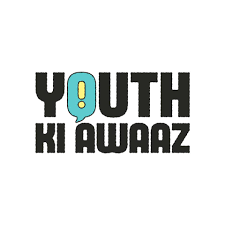New Delhi, 13 November 2024: Youth Ki Awaaz, a leading citizen-driven civic tech platform, has released a new report on the implications of the Digital Personal Data Protection Act (DPDP) 2023, particularly focusing on verifiable parental consent (VPC) and reduced internet personalization for children. Based on a comprehensive survey of over 3,000 parents and children across India, the report highlights significant concerns about the challenges of balancing data privacy, parental control, and the practicalities of ensuring a safe but enriching digital experience for children.
The report titled “Balancing Consent & Customisation under the DPDP Act 2023: India’s Youth & Parents on Parental Consent & Internet Personalisation,” sheds light on how families perceive parental oversight, privacy, and internet use. The findings aim to inform policymakers working to implement Section 9 of the DPDP Act, which mandates parental consent for children’s data processing and restricts personalized content for minors under 18.
Read the full report here.
Key Findings:
Parental Consent Challenges: 77% of parents prefer a one-time, streamlined consent process that could be integrated directly into platforms such as app stores, reducing the need for constant approvals.
Lack of Digital Literacy: The report also highlighted concerns from parents, especially those from low-income backgrounds or first-time internet users, who find the current consent process burdensome and hard to navigate.
Parental Concerns: 57% of parents agree that restricting personalisation would negatively impact their child’s online experience.
Impact on Learning: Parents fear that the current system, which requires frequent consent, could hinder their children’s ability to freely access educational resources, particularly as children grow older and require more independence in their online activities.
Children’s Discomfort: 63% of children feel uncomfortable with needing parental consent for every app or feature, with 26% citing privacy concerns. Many feel constant supervision restricts their independence.
Children’s Experience: 54% of children believe removing personalised content would negatively affect their overall internet experience, and 71% of children find personalised ads helpful for discovering relevant content (e.g., games, educational tools).
Commenting on the report findings, Anshul Tewari, Founder and CEO, Youth Ki Awaaz, said, “Implementing Section 9 of the DPDP Act needs to consider the realities of children’s digital experiences. This report provides actionable insights that can aid in developing inclusive policies supporting both privacy and a vibrant internet experience for young users, creating a more practical and user-friendly approach to child safety and data privacy.”
Need for a One-Time Consent Mechanism
The report suggests a flexible and streamlined, one-time consent mechanism that would streamline the management of their children’s internet access. This mechanism, integrated into digital platforms like the Play Store or App Store, would reduce friction while ensuring compliance with the DPDP Act’s requirements more feasible for families with lower digital literacy. Such a solution would not only ease the burden on parents but also allow children more autonomy, particularly in their educational and skill-building activities.
It also recommends a balanced approach to content personalization, allowing age-appropriate personalization under transparent guidelines to ensure children’s developmental needs are met without compromising data safety while fostering a positive digital environment.
About Youth Ki Awaaz
Youth Ki Awaaz is India’s largest civic tech platform that amplifies youth voices through surveys, storytelling, and public dialogue. With a community of over 180,000 young contributors and 10 million monthly readers, Youth Ki Awaaz advocates for change and empowers the next generation to shape policy and public discourse.




